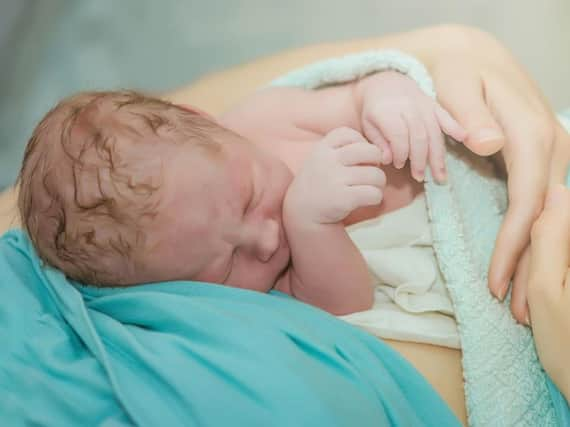Time to open up about traumatic births, says Blackpool lawyer


That’s according to a Blackpool medical negligence solicitor who has praised tennis star Serena Williams for talking about her experiences.
“Raising awareness both among professionals and the general public, helps to reduce risk,” said Diane Rostron.
“Women who have suffered traumatic deliveries often feel very alone. Simply knowing they are not the only person who has been through such an experience can be very helpful.”
In an interview with Vogue, Williams said she had undergone a series of operations following the birth of her daughter, who was delivered by emergency caesarean section.
The 36-year-old, 23-time Grand Slam champion was in hospital for more than a week, after blood clots in her lungs led to a coughing fit that reopened her C-section wound.
“Sometimes I get really down and feel like, man, I can’t do this,” she told the fashion magazine.
"I’ve broken down I don’t know how many times. Or I’ll get angry about the crying, then sad about being angry, and then guilty, like, ‘Why do I feel so sad when I have a beautiful baby?’ The emotions are insane.”
Diane said this kind of thinking was quite common, and that breaking the taboo was key to helping women realising they are not alone.
Knowing what to expect also helps, which is another reason people should speak about their experiences.
“Minor degrees of trauma to the baby and to mum are actually quite common,” said Diane, adding this might include cuts and bruises, and forceps and ventouse marks to the baby, or cuts and bruises to the perineum in women.
“Many babies recover without any lasting problems. Some who lose a lot of blood become anaemic and may require blood transfusions.”
Serious birth trauma, however, is rare, and the risk can be minimized, she went on.
“The risk of it can be minimized by mums making sure that they attend antenatal appointments and when they go into labour, seeking advice early.
“Never feel intimidated about asking midwives and obstetricians for advice.”
According to the charity the Birth Trauma Association, traumatic births can lead to post traumatic stress disorder (PTSD). This can lead to the persistent re-experiencing of the event, through memories, flashbacks and/or nightmares, as well as difficulties sleeping or concentrating.
Sufferers may also feel angry, irritable, jumpy or ‘on their guard’ all the time.
“It is important to remember that PTSD is a normal response to a traumatic experience. The re-experiencing of the event with flashbacks accompanied by genuine anxiety and fear are beyond the sufferer's control.
“They are the mind's way of trying to make sense of an extremely scary experience and are not a sign individual 'weakness' or inability to cope,” said the charity.
Diane agreed, and said anyone worried that mistakes were made during the birth of their child should seek professional advice and complain to the hospital
“Mistakes do sometimes happen, especially when maternity units were understaffed.
“Try to find out exactly what happened and put together a diary of events as they unfolded,” she said.
To find out more about Diane’s services, click here.